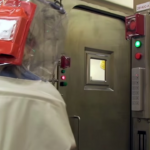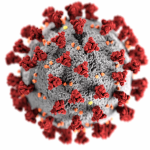Biological codes of conduct versus government oversight
By Malcolm Dando | November 26, 2008
A recent conference, “Sustaining Progress in the Life Sciences: Strategies for Managing Dual Use Research of Concern,” hosted by the World Health Organization and the U.S. National Science Advisory Board for Biosecurity (NSABB) in Washington, addressed a range of issues, many of which map well on to the agenda of the States Parties meeting of the Biological and Toxin Weapons Convention (BWC) which will be held next week.
While in Washington, I began to realize more clearly then I had previously how oversight, education, awareness raising, and codes of conduct differ. Applying each approach to the potential dual use of biological technologies will similarly require drastically different strategies. In preparation for the coming BWC meeting, I set out to crystallize some of these distinctions.
Without clear criteria for dual-use research of concern, no objective decisions are possible, and given the obvious beneficial results of most research and the intangible possibility of misuse, little action on potential misuse will result.”
The difference between awareness raising and education was nicely illustrated by one participant in a breakout group at the NSABB conference when he argued that someone who was not aware of the oceans would be aware if shown one, but that did not mean that he or she would be able to swim in it! Clearly some parts of industry are carrying out training about aspects of biosecurity, but huge educational gaps remain, particularly at the university level around the world.
Many of these gaps are evident in recommendations put forth in the BWC chairman’s synthesis paper from the August 2008 BWC meeting of experts, which acknowledges the importance of ensuring that all those working in the biological sciences are aware of their obligations under the convention. To ensure this, it recommends: explaining to scientists “the risks associated with the malign use of the biological sciences and biotechnology and the moral and ethical obligations incumbent on those using the biological sciences” and providing “guidance on the types of activities that could be contrary to the aims of the convention and relevant national and international laws and regulations.”
Pursing these goals would solicit few objections from within the community, so a fair number of specific proposals, ranging from establishing formal requirements in relevant scientific and engineering programs to creating accessible teaching materials and developing targeted outreach strategies for senior scientists with responsibility for oversight, adorn the international agenda.
Some of the differences between kinds of codes–ethical, conduct, and enforceable–became apparent at the 2005 BWC meetings. Ethical codes state aspirations but have no enforcement mechanisms, codes of conduct provide more detailed guidance (say, from a professional organization), and enforceable codes are legal requirements. If the distinctions between these three are not well understood, confusion will result.
The chairman’s synthesis paper suggests that codes of conduct should be developed as complements to national laws and regulatory frameworks and should “cover ethical and moral obligations throughout the scientific life cycle,” and “refer to the convention and relevant international and national legislation and regulations.” Yet codes would present challenges if they were to threaten to impede scientific discovery and place constraints on research, or if their guidelines aren’t concise and practical enough. Similarly, asking scientists to be alert to the potential misuse of research and to report concerns risks creating an uneasy research setting.
When I’ve talked with scientists in recent years, the most adverse reactions have come in response to suggestions of oversight for research proposals and publications. They have argued that it is impossible to objectively decide (that is, make widely accepted decisions) about which research projects are of dual use concern and should therefore be subject to a form of control. This response leads me to believe that this would not be an easy problem to resolve. Indeed, the synthesis paper confirms that oversight will be a particularly difficult issue. In putting together oversight measures, parties will have to “balance ‘top-down’ governmental or institutional controls, such as licensing, with ‘bottom-up’ oversight by scientific establishments and scientists themselves, such as peer-review.”
The impact of the ongoing revolution in the life sciences on attempts to construct viable oversight systems is also evident in a later recommendation in the synthesis paper: “Regularly review scientific and technological developments relevant to the convention, and consider creating an international scientific advisory panel to independently analyse such developments.”
Some scientists argue that it will never be necessary to create objective criteria to define dual-use research of concern because criteria are not necessary to agree on what is of concern. Yet without clear criteria no objective decisions are possible and given the obvious beneficial results of most research and the intangible possibility of misuse, little action on potential misuse will result. Thus a great deal of effort in developing codes and oversight measures will result in very little.
The statements from the August BWC experts meeting show that States Parties would like to make progress in strengthening the BWC in these dual use areas. However, this quick analysis of the various approaches in circulation suggests that progress will be likely on only a few fronts. From my reading of the chairman’s synthesis paper, States Parties may do best to press forward on education and awareness-raising. Even with these approaches, progress will be uneven and some countries and regions will move faster than others on some issues.
In the meantime, there is a great need to communicate about what is happening in different parts of the world. At the very least, States Parties should work to make a centralized group, such as the BWC Implementation Support Unit or an NGO, in charge of spearheading this communication effort.
Together, we make the world safer.
The Bulletin elevates expert voices above the noise. But as an independent nonprofit organization, our operations depend on the support of readers like you. Help us continue to deliver quality journalism that holds leaders accountable. Your support of our work at any level is important. In return, we promise our coverage will be understandable, influential, vigilant, solution-oriented, and fair-minded. Together we can make a difference.
Topics: Biosecurity, Columnists














